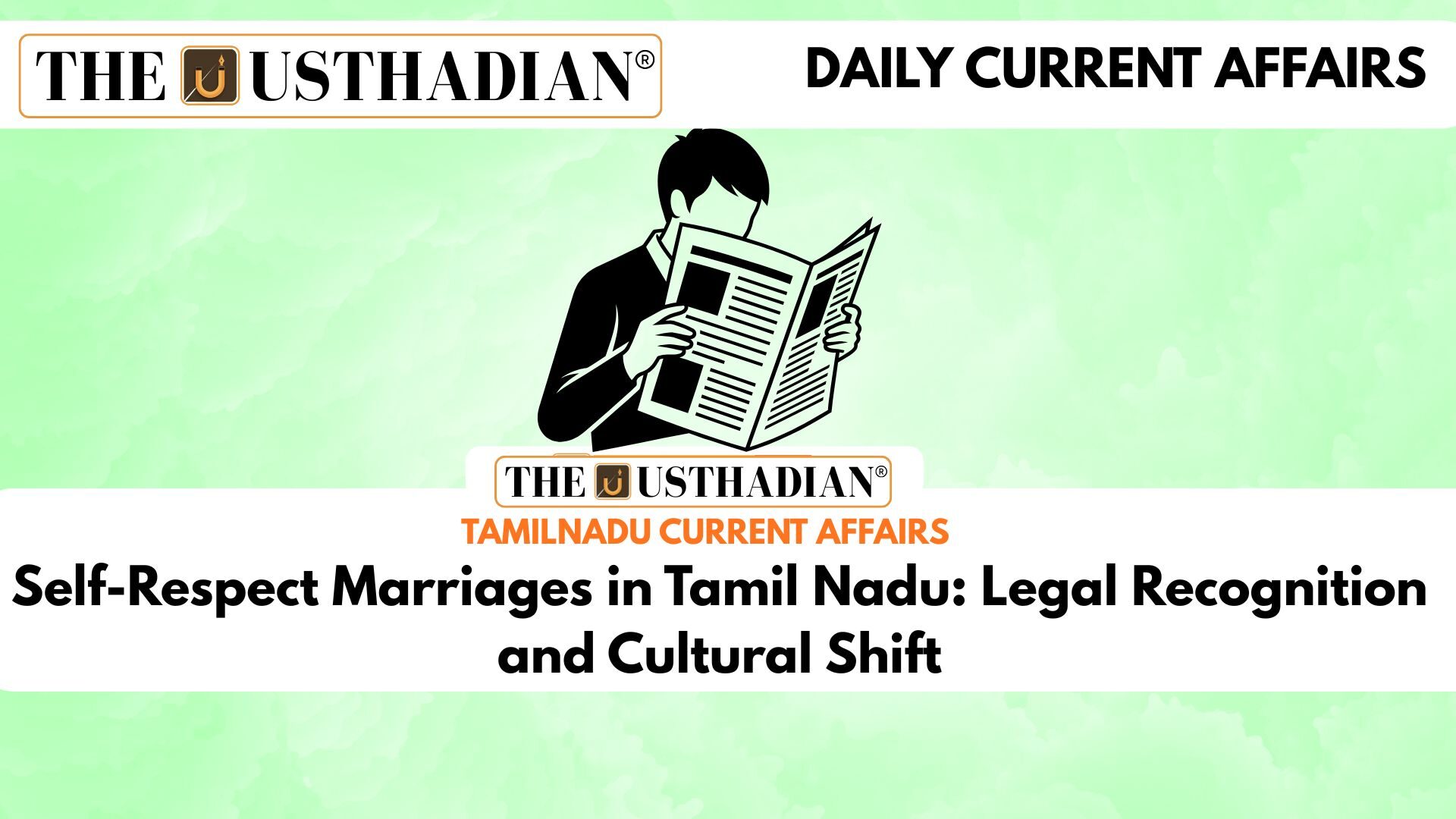What Are Self-Respect Marriages?
Self-Respect Marriages in Tamil Nadu: Legal Recognition and Cultural Shift: Self-Respect Marriages, also known as Suyamariyadhai Thirumanam, are unique to Tamil Nadu and are solemnised without the presence of a priest or the performance of orthodox rituals. Instead, the couple exchange garlands or rings, declare mutual consent, and sign the marriage documents. Rooted in Dravidian ideology and social reform, this form of marriage emerged as a response to caste oppression and religious orthodoxy.
Legal Framework and Recognition
These marriages are legally valid under Section 7(A) of the Hindu Marriage Act, 1955, a special provision inserted by the Tamil Nadu Amendment Act of 1967. Tamil Nadu is the only state in India with this legal provision, which recognizes marriages performed without Vedic ceremonies. The registration ensures equal rights and legitimacy for couples who choose this alternative route.
Rise in Self-Respect Marriages Since 2018
According to official data, 12,114 self-respect marriages have been registered in Tamil Nadu between 2018 and 2024. This number reflects a growing cultural shift towards egalitarian, secular weddings that reject caste-based and ritual-heavy practices. Many such marriages are also inter-caste or inter-faith, promoted under the values of rationalism and equality.
Cultural Significance and Social Reform
The concept of Suyamariyadhai marriage was first popularised by Periyar E.V. Ramasamy, the pioneer of the Self-Respect Movement. He encouraged couples to marry without Brahminical rituals to break caste barriers. Today, this continues to resonate with youth and progressive communities who seek dignity, simplicity, and legal recognition without religious intermediaries.
STATIC GK SNAPSHOT
Self-Respect Marriages in Tamil Nadu: Legal Recognition and Cultural Shift:
| Feature | Details |
| Marriage Type | Self-Respect (Suyamariyadhai Thirumanam) |
| State Practising | Tamil Nadu |
| Legal Provision | Section 7(A), Hindu Marriage Act, 1955 |
| Introduced By | Tamil Nadu Amendment Act, 1967 |
| Year of Legal Insertion | 1967 |
| Originator of Concept | Periyar E.V. Ramasamy |
| Marriages Registered (2018–2024) | 12,114 |
| Nature of Marriage | Without priest or Vedic rituals |
| Legal Requirement | Mutual consent, registration with authorities |
| Cultural Goal | Social reform, caste equality, rationalism |








